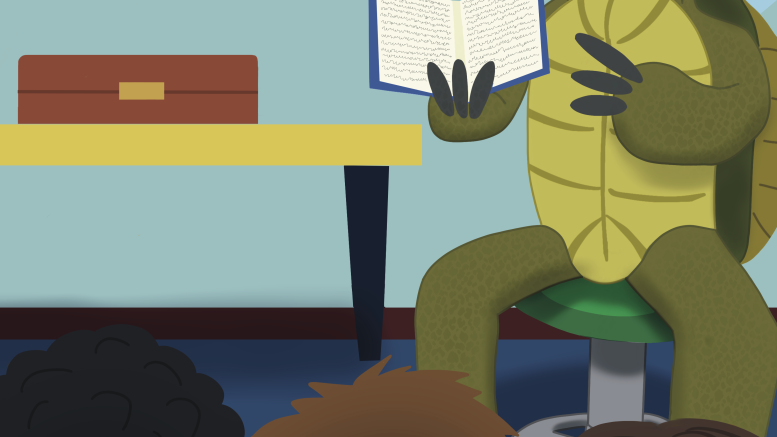I was five, maybe six, when I heard the story of the tortoise and the hare.
In the classic folktale, an arrogant hare challenges the slow-moving tortoise to a race, and to everyone’s surprise, the tortoise agrees. The overly confident hare had envisioned an easy victory, so midway through the race, he decides to take a nap. When he awakens — much to his horror — he realizes that the persistent tortoise has emerged as the winner.
There are two obvious lessons here: first, don’t underestimate anyone, and second, slow and steady wins the race.
But there are many versions of the story of the tortoise and hare.
In the version I’m familiar with, the tortoise knew the odds were not in his favour. So, he devised a plan with the entire tortoise family — the other tortoises would conceal themselves along the race path, ready to impersonate him whenever the hare looked away.
Now, this worked. Of course, the arrogant hare had looked back to gloat at the tortoise and to his astonishment, there was no tortoise trailing behind him. When he looked ahead once more, he saw that the tortoise had already crossed the finish line.
Though the tortoise used deception to win when racing the hare, the narrative underscores that when individuals collectively work together, they have the potential to surmount a wide array of challenges.
Tortoises are familiar trickster figures in West-African folktale — a constant in the exploration of various ethical propositions.
There’s a proverbial expression regarding folktales among the Igbo people in the southeastern region of Nigeria, that translates to “there’s got to be a tortoise in it,” or the tale is incomplete. Tortoises are a prominent symbol of knowledge within the Igbo culture.
In Chinua Achebe’s 1958 genre-bending masterpiece Things Fall Apart, Achebe wrote regarding the tortoise, “Nothing that happened in the world of the animals escaped his notice; he was full of cunning.”
In his work, the protagonist’s second wife, Ekwefi, narrates the tale of the tortoise’s ingratitude and trickery to her daughter.
In this tale, the tortoise set out to cheat the bird family, which was invited to a feast in the sky. In a show of camaraderie, every bird had given the tortoise a feather so it could fly with them. The tortoise had also insisted on adopting the name “All of you” before arriving at the feast. Since all the offerings at the feast typically began with the phrase “this is for all of you,” the tortoise mischievously claimed all the food and refreshments intended for the birds for itself.
Vexed, the hungry birds each took back the feathers they lent to the tortoise earlier, leaving the stuffed reptile unable to fly back home. This inevitably led to the tortoise’s near-fatal descent to the earth from the skies, resulting in a badly shattered shell.
I remember reading this passage like it was yesterday, and it got me thinking about the many lives tortoises have supposedly lived. They’ve been the heroes and villains of many stories.
Many Nigerian kids, like me, grew up hearing these folktales, and developed a sophisticated understanding of these tortoise characters. We are capable of discerning when to applaud the tortoise’s resourcefulness, when to laugh at its self-inflicted mishaps and when to be appalled by its moral shortcomings.
There’s a dualistic nature to these tales, educating and entertaining members of society.
Cairo University professor Loubna Youssef wrote an article dissecting the works of Achebe and Egyptian writer Abdel-Tawab Youssef — both prominent figures in African literature — and essentially argued that Africa has its own culture, stories, and heroes of these stories, and that these stories should be shared.
Thinking about tortoise tales in this sense, these folktales are not just fictional narratives, but rather a part of a much larger moral narrative that contributes to the very foundation of culture itself.
Folktales portray the anxieties and problems in society, urging people to reflect thoughtfully about the world that surrounds them. The lessons of these tales remain fundamental.
Tortoise tales and storytelling are an important part of society. They tell us our history, our values and define our identity.
Perhaps tortoises even form the very foundation of Earth itself.
After all, according to Ojibwe stories, when the world was just sea, animals united to shape their home. The muskrat’s unwavering determination helped it to succeed when others faltered, as it dove beneath the water and collected a fistful of soil that would be used to create earth. The soil was placed on the great turtle’s shell, and with a gentle breath, the earth emerged.
Although turtles and tortoises are different, the way these shelled creatures remain present in many foundational stories around the world speaks to the ways stories are core to all of our lives.

